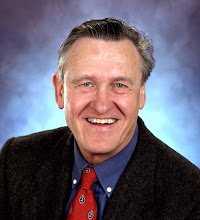Politicians have a notoriously bad record predicting the
consequences of policies they have adopted. Recent tax increases on the highest
income earners in Canada were predicted to raise revenues by $3 billion but in
the first year (2016) the amount of taxes these Canadians in the top one
percent paid were $4.6 billion lower than they paid in the
preceding year.
Politicians love forecasts of doom, which increases their
power and status as they adopt policies to prevent it. Politicians created
recycling programs after the Club of Rome
in 1972 predicted that the world was running out of natural resources. The depletion
of oil reserves was the conventional wisdom around the turn of the
century.
As a wit once said, predictions are very difficult,
especially about the future. Predictions like those by the Liberal government,
the Club of Rome and energy analysts often turn out wrong because of improbable
events that could not be foreseen – the black swans discussed by Nassim Taleb.
But predictions also are often wrong because predictable events are not
properly considered. History has shown convincingly that high-income earners always
shift income through time, space and into low-taxed investments to reduce their
tax obligations. Consumers always reduce purchases when the price of a good
increases and producers react by increasing supply so that the world will never
run out of resources.
The predictions by politicians and pundits about the
political landscape in British Columbia resulting from the adoption of a
proportional representation system for elections is likely also to be false.
The leaders of the NDP and Greens initiated a referendum on this change in the
expectation that they would continue to receive at least the same proportion of
votes as they did under the old system and thus together would be able to form
government easily without precarious majorities as they have since 2017. The
Greens believe moreover that they will receive more votes than they did under
the old system as voters will realize that they no longer “waste” their votes
on a party that has no chance to be in government.
The defenders of the current electoral system predict that
the new one will bring into parliament politicians representing existing
parties that have never had electoral success
before, such as Libertarians, Communists, Christian Heritage,
Cascadia, Social Credit and, until the 2017 election the Greens, all of which
were on that year’s ballot. They also predict the formation of entirely new
parties with policy agendas that are “extreme right-wing”, “racist-fascist”,
“anti-immigrant”, “single issue”, “communist “, “libertarian unlimited
immigration” etc.
It is quite unlikely that any of the small existing parties
or the expected new parties will get more than five percent of the vote, which
will be a threshold required by the proposed new voting system leading to seats
in parliament. The votes they receive will come from the supporters of the
existing major parties but affect them unpredictably and in the aggregate could
lead to major changes in their election platforms.
However, in the above list of parties are absent some, which
have large constituencies with strong bonds among voters and a good chance to
win seats in future elections. These parties are likely to be rooted in the large
ethnic populations living in Richmond, Surrey and other suburbs of Vancouver. Opportunistic
political entrepreneurs could gain votes with the promise to get spending
programs and regulations benefiting their regions in return for joining a
ruling government coalition.
There are also likely to be opportunities for new, populist
parties that attract voters who want to see changes in some policies made
unchallengeable by the code of political correctness. According to opinion
surveys, this is the case for reform of Canada’s immigration and refugee policies.
Maxime Bernier has successfully formed a federal party with such a policy as an
important part of its agenda.
Bernier’s proposed reforms of immigration policies are
widely condemned as racist and fascist by the political elites in Canada. In
fact, they are neither but are designed to serve the national interest, just
like the federal Liberals policies on supply management, culture and banking. A
BC branch of Bernier’s Peoples’ Party under proportional representation might
attract enough votes from all three major parties to enter parliament with
uncertain effects on the establishment parties
.
Most of the parties with a chance to gain seats in
parliament are unlikely to fit the traditional classification of left or right
but they are likely to win enough votes from the NDP, Liberals and Greens to
create major changes to the political landscape in British Columbia and with
them bring unpredictable new social and economic conditions.
Voters in the BC referendum who do not want to see such
changes should vote for the retention of the system that has made the province
one of the most prosperous in Canada.
Herbert
Grubel
Emeritus
Professor of Economics
Simon Fraser
University
Published in Vancouver Sun Predicting the
political landscape after electoral reform in B.C.
Vancouver
Sun editorial, November 4, 2018
https://vancouversun.com/opinion/op-ed/herb-grubel-predicting-the-political-landscape-after-electoral-reform-in-b-c.jpg)
No comments:
Post a Comment